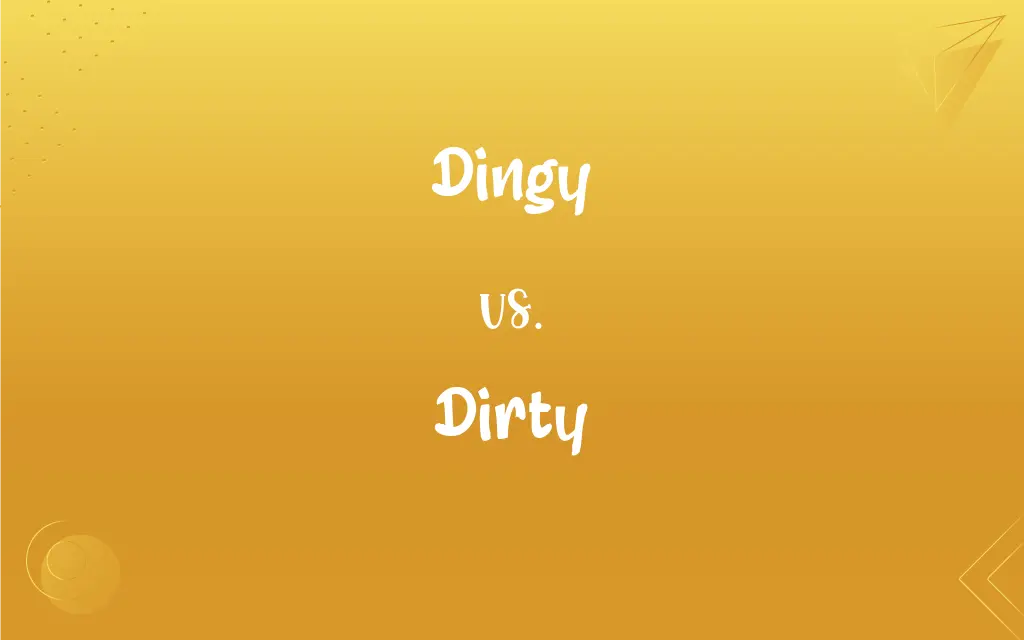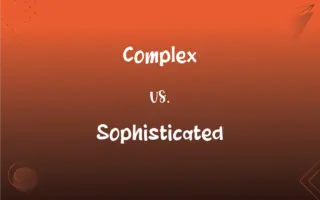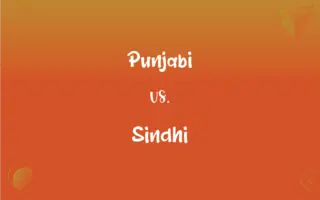Dingy vs. Dirty: What's the Difference?
Edited by Janet White || By Harlon Moss || Updated on November 7, 2023
"Dingy" refers to things that are gloomy and drab due to neglect or dirt, while "dirty" means covered or marked with an unwanted substance.

Key Differences
Dingy often implies a grimy, faded, or shabby appearance, suggesting long-term exposure to dirt or neglect. Dirty, on the other hand, denotes the presence of dirt, stains, or impurities, often as a result of recent activity or contact. For example, a white shirt becomes dingy after years of inadequate washing, whereas it gets dirty from spilling coffee on it.
A dingy room might have lost its brightness, not just from dirt, but also from wear, age, or poor lighting. A dirty room is characterized by having been soiled with dirt or debris, regardless of the wear or lighting conditions. Thus, while all dingy things are somewhat dirty, not all dirty things are dingy.
Dinginess is sometimes a more subtle condition—it can describe a pervasive sense of dullness or grubbiness. Dirtiness is less subtle and usually tangible, describing a clear need for cleaning due to visible filth or soil. A dingy carpet might simply look old and faded, whereas a dirty carpet has obvious spots or mud tracked in.
Dinginess can suggest a lack of cheer or an oppressive atmosphere, while dirtiness doesn't necessarily affect the mood of a setting. A dingy bar might have a depressing air due to dim lighting and worn furniture, but a dirty bar might just need a good scrub down from a recent party.
Both dingy and dirty can apply to intangible concepts as well. Dinginess can describe an overall impression or feeling, such as a dingy reputation, whereas dirty can imply moral turpitude or underhanded tactics, like playing dirty in politics.
ADVERTISEMENT
Comparison Chart
Connotation
Worn and gloomy from neglect or use.
Covered with or containing unwanted substances.
Context
Often used for textiles or spaces.
Broadly used for objects, spaces, and actions.
Duration
Implies long-term exposure.
Can be a result of a recent act.
Intensity
Subtle and pervasive.
Obvious and tangible.
Mood
Can suggest a depressing atmosphere.
May not affect the mood.
ADVERTISEMENT
Dingy and Dirty Definitions
Dingy
Lacking brightness or freshness.
The once-white walls were now dingy and peeling.
Dirty
Covered with or containing dirt.
The puppy's paws were dirty after playing outside.
Dingy
Gloomy and drab.
He walked down a dingy corridor that smelled of old books.
Dirty
Morally contaminated.
He felt dirty after telling the lie.
Dingy
Shabbily dreary.
The dingy storefront hardly invited any new customers.
Dirty
Involving dishonest or dishonorable tactics.
The campaign became dirty in its final days.
Dingy
Depressingly dull or faded.
Her favorite sweater had turned a dingy shade of grey.
Dirty
Obscene or indecent.
The comedian's dirty jokes made the crowd uncomfortable.
Dingy
Having a grimy or dirty appearance.
The windows were dingy after years without a proper wash.
Dirty
Capable of polluting or spoiling.
They protested against the dirty energy sources harming their community.
Dingy
Darkened with smoke or grime.
Dirty
Covered or marked with dirt or an unwanted substance; unclean.
Dingy
Shabby, drab, or squalid.
Dirty
Spreading dirt; polluting
The air near the foundry was always dirty.
FAQs
What does dingy mean?
Dingy describes something that is gloomy, drab, or shabby, often due to neglect or age.
Is dingy a temporary state?
No, dingy often implies a more permanent or long-term condition.
What does dirty mean?
Dirty refers to something contaminated with dirt or filth.
Can "dirty" also mean something is morally questionable?
Yes, dirty can refer to things that are ethically or morally tainted.
Can something be both dingy and dirty?
Yes, an object can be both if it's not only dirty but also has a generally dull or faded appearance.
Can a person be described as dingy?
Yes, but it usually refers to their clothing or appearance being drab or worn.
Is dingy an adjective?
Yes, dingy is an adjective describing a characteristic of something.
Can actions be described as dirty?
Yes, actions can be dirty if they are dishonest or immoral.
Are dingy and dirty synonyms?
They can be related, but are not exact synonyms; dingy implies wear or dullness, while dirty means having dirt or filth.
How do you clean something that's dingy?
Often it requires more than cleaning, like painting or thorough restoration, due to its association with wear.
Can "dirty" ever have a positive connotation?
In some contexts, dirty can be used affectionately or playfully, but it generally has a negative connotation.
What's the noun form of dingy?
Dinginess is the noun form, describing the state of being dingy.
Can a situation be described as dirty?
Yes, especially if it involves corrupt or unscrupulous behavior.
How do you clean something that's dirty?
Cleaning typically involves removing the dirt or filth with soap, water, or other cleaning agents.
Are there degrees of dinginess?
Yes, an object can range from slightly to severely dingy.
Are there degrees of dirtiness?
Absolutely, from lightly soiled to extremely dirty.
Can the word dirty function as a verb?
Yes, dirty can also be used as a verb meaning "to make something dirty."
Is "dingy" ever used in a positive sense?
It's uncommon, as dingy usually has a negative connotation related to neglect or gloom.
What's the noun form of dirty?
Dirtiness is the noun form, referring to the state of being dirty.
Can an atmosphere or mood be described as dingy?
Yes, it can describe an overall feeling of dullness or depression.
About Author
Written by
Harlon MossHarlon is a seasoned quality moderator and accomplished content writer for Difference Wiki. An alumnus of the prestigious University of California, he earned his degree in Computer Science. Leveraging his academic background, Harlon brings a meticulous and informed perspective to his work, ensuring content accuracy and excellence.
Edited by
Janet WhiteJanet White has been an esteemed writer and blogger for Difference Wiki. Holding a Master's degree in Science and Medical Journalism from the prestigious Boston University, she has consistently demonstrated her expertise and passion for her field. When she's not immersed in her work, Janet relishes her time exercising, delving into a good book, and cherishing moments with friends and family.































































